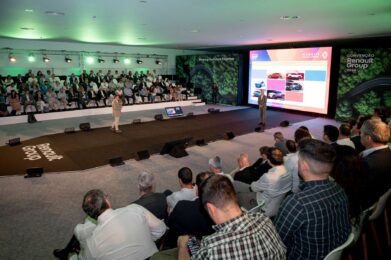Everywhere you look, there is change across the events industry. Against a backdrop of technological and physical disruption due to the coronavirus, a shift in the dynamics that define the relationships between brands, agencies and consumers is taking place. It can be overwhelming to navigate through this change and to identify what conference delegates find valuable and what is just hype.
To help, I’ve listed out my four top tips when it comes to making online events a success.
1. Identify time saving technologies
It’s astonishing to see just how many event organization apps there are now on the market. But while there are plenty of innovative ideas, the reality of using apps that have to be integrated, populated and rolled-out for each event can be time consuming and tiresome for both organizers and end-users.
However, event organizers need to make sure that the right technology is rolled out. We know that delegates, particularly younger attendees, not only feel more comfortable using technology, but they increasingly expect it. In fact, delegates often won’t engage with companies and organizations at all that haven’t adapted to their offering.
When identifying which technologies to use for your event, ask yourself what the central goal of the event is, what the expectations of attendees are, and how the technology can help attain both of those goals.
Look at the demographics of your attendees. What are their interests? Are there any cultural considerations? Do they have the necessary tools in place to effectively navigate the venue and make connections with speakers?
Moreover, does the technology you’re considering using reduce administrator time, save costs, improve the event layout or enhance the user experience? If the answer is yes to one or more of these criteria, it’s worth considering.
2. Your event should flow well and remain succinct
Technology has facilitated the rapid exchange of ideas. We’re able to obtain information in real-time and on-tap via our smart devices. One of the consequences is that consumers—and therefore event delegates—want to get straight to the point, and quickly.
At the same time, the way in which we receive information and engage with others has changed. We’re used to obtaining data from multiple sources in a less structured way than we might have before the digital age.
Consider how you might reflect this in your event. What elements of your event are unnecessary? Get rid of them. How might you convey information in a meaningful way that encourages participants to interact?
3. Personalization is key
When it comes to personalization at events, expectations have changed. It’s no longer good enough to take a one-size-fits-all approach. Because companies have much better insight into consumer behavior, today’s consumers take a personalized approach for granted. Work your way backwards by getting to know your audience. You can do this by drawing up persona profiles to establish the unique interests and expectations of your delegates.
Are their needs catered to? How can you ensure they will feel comfortable in the environment of your event? By asking such questions, you can take your event to the next level.
4. Be aware of international delegates
All too often we are seeing that international events are offered in a single language. This discourages engagement, limits attendance and is off-putting for speakers and delegates alike who, in today’s digital era, expect a personalised and technology-enhanced response to these challenges.
Platforms hosted in the cloud can provide remote, simultaneous interpreting for one-to-one meetings, roundtables, corporate events and large-scale conferences, in as many languages as required.
Cloud platforms allow interpreters to work remotely and participants to use their smartphones as receivers by downloading an app. And, because interpreters need not travel and no AV equipment and interpretation booths on-site, cost savings compared to conventional interpreting technology are substantial.
These four tips are designed to take the stress out of event management. With the help of technology, we can open up events to living rooms, offices and anywhere else in the world—all in a language of their choice.
The technology is there—we just have to use it!
Kim Ludvigsen is CEO and co-founder of Interprefy. He grew up in Denmark, lives in Zurich, has a degree in civil engineering and an MBA from INSEAD.




